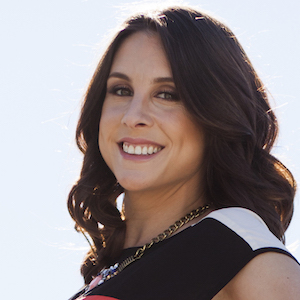Continuous Improvement: Turning Mistakes into Productive Learning Opportunities
By Deanna deBara ![]() | Published June 4, 2024
| Published June 4, 2024
Everyone makes mistakes, including mistakes at work. For some people, making a mistake at work drives an influx of negative feelings, like shame, embarrassment, or self-doubt.
But it doesn't have to! By changing the way you think about mistakes, you can stop seeing them as something to be ashamed of or a reason to doubt yourself and embrace a growth mindset. See mistakes as what they are—an opportunity to learn and grow.
So the question is: how, exactly, do you do that? How do you transform a mistake from a mishap into an opportunity?
Acknowledge and own the mistake
Before you can learn from your mistake, you need to acknowledge that a mistake was made—and the first person you need to recognize it to is yourself.
Once you realize something has gone wrong, acknowledge that you've made a mistake. But how you recognize the mistake to yourself will play a significant role in whether you go into a shame spiral (how could I do this? Why am I so stupid? I can't believe I messed this up!) or use the mistake as a platform for professional growth.
When you acknowledge that you made a mistake, give yourself some grace and understanding instead of beating yourself up about it. Tell yourself, "I made a mistake. But mistakes happen. Making a mistake doesn't make me any less intelligent or worthy or competent or strong; it just makes me a human."
Self-compassion will not only make you feel better, but it will also put you in the right mindset to take the necessary steps to turn that mistake into a helpful lesson.
Own the mistake
Once you've acknowledged your mistake to yourself, it's time to own it.
Acknowledge your mistake to any colleagues who have been impacted. For example, let's say you made a mistake when designing a sales deck, included inaccurate pricing information, and then sent that deck to a potential client. In that situation, you would want to:
- Acknowledge the mistake to your supervisor
- Tell them how you're going to make the mistake right
- Create a plan to address the client
So, you might say to your supervisor:
"I just wanted to let you know that I made a mistake while designing the sales deck. I included outdated pricing information—and I didn't catch the mistake until after I sent the deck to the client. I'm sorry for the oversight. I will redesign the deck immediately with our current pricing. Then I'd love your help drafting an email to the client explaining what happened and introducing our current pricing structure."
Owning your mistake allows you to correct it, and it also shows that you're willing to take accountability when things go wrong, which can help foster trust with your team.
Look for the lesson—and apply it in the future
You've acknowledged the mistake, owned it, taken responsibility for what went wrong, and done whatever was necessary to make it right. Now, it's time to dig into the mistake: what went wrong, why it went wrong, and how to prevent the same thing from going wrong in the future.
In other words, it's time to look for the lesson. And how do you do that? By asking yourself some questions.
Reflect on the mistake. Ask yourself:
- How did this mistake happen? What went wrong?
- Why did this mistake happen?
- Was there anything happening that might make you more likely to make a mistake? (For example, were you working late, feeling extra stressed, or going through a personal challenge?)
- Did I know I was making a mistake at the moment—or did I realize the mistake after the fact?
- What can I learn from this mistake?
- How can I avoid making this mistake in the future?
- How can I apply the lessons learned from this mistake in the future?
Take some time to sit with these questions. Write them down (that way, you can refer back to your notes in the future). Dig deep and be honest with yourself. It's only through being honest (even when it's hard!) that you'll be able to learn the lesson, identify the growth opportunity—and then actually grow from it and avoid making the same mistakes in the future.
For example, maybe after reflecting and answering these questions, you realized that you made a mistake during a presentation because you were under-prepared. In that situation, you might give yourself more time and/or dedicate more hours to work on the presentation before you actually have to present.
Or maybe you realize you made a serious oversight because you worked late. If that's the case, you might make it a point to tackle your most important, detail-oriented work when you're feeling the most awake and alert—and if you find yourself in a situation where you have to work late, avoid tackling any tasks that require too much attention to detail.
The point is that only by digging into your mistake (what went wrong, why it went wrong, and how you can prevent it from happening again) can you truly understand it and ultimately learn and grow from it.
Categories
Productivity Tips

Deanna deBara
Deanna deBara is an entrepreneur, speaker, and freelance writer who specializes in business and productivity topics. When she's not busy writing, she enjoys hiking and exploring the Pacific Northwest with her husband and dog. See more of her work and learn more about her services at deannadebara.com.